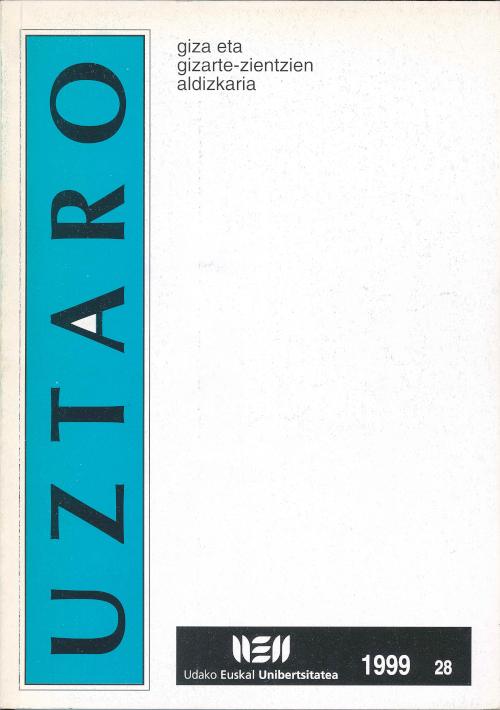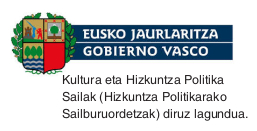Komunitatea eta genero-harremanak J.J. Rousseau-ren pentsamenduan
Abstract
The majority of feminist theoreticians present J.J. Rousseau as the father of modern patriarchy. Nonetheless, one of the fundamental characteristics of his work is its richness, making it possible for there to be multiple interpretations of the many subjects he dealt with. The reflections made at the end of the 1980s by a series of feminist authors are an example of this, reflections counterpoised in a certain sense to those put forward by the greater part of feminist theoretical production. Thus, while sexist discourse is evident in the thought of the theoretician of national democracy, this discourse does not necessarily lead to a denial of citizen ship to women.Downloads
Download data is not yet available.
License
Copyright (c) 1999 Uztaro

This work is licensed under a Creative Commons Attribution-NonCommercial-ShareAlike 4.0 International License.
Downloads
Published
1999-04-23
How to Cite
Amurrio Velez, M. (1999). Komunitatea eta genero-harremanak J.J. Rousseau-ren pentsamenduan. Uztaro. Giza Eta Gizarte-Zientzien Aldizkaria, (28), 113–118. Retrieved from https://aldizkariak.ueu.eus/index.php/uztaro/article/view/3934
















